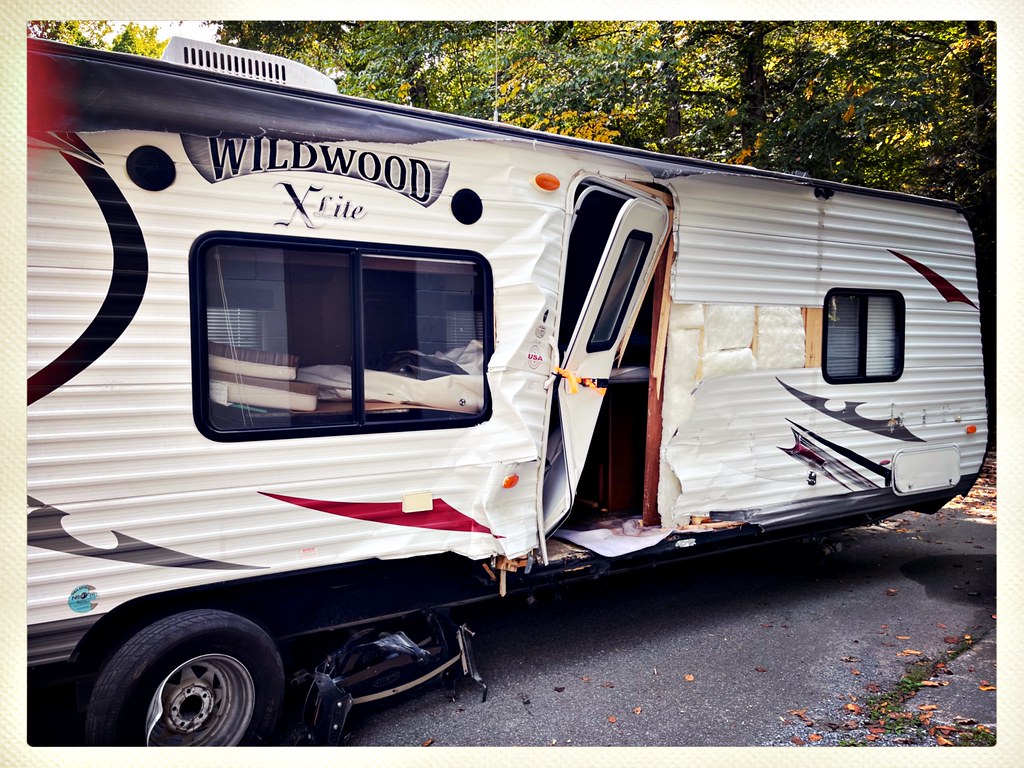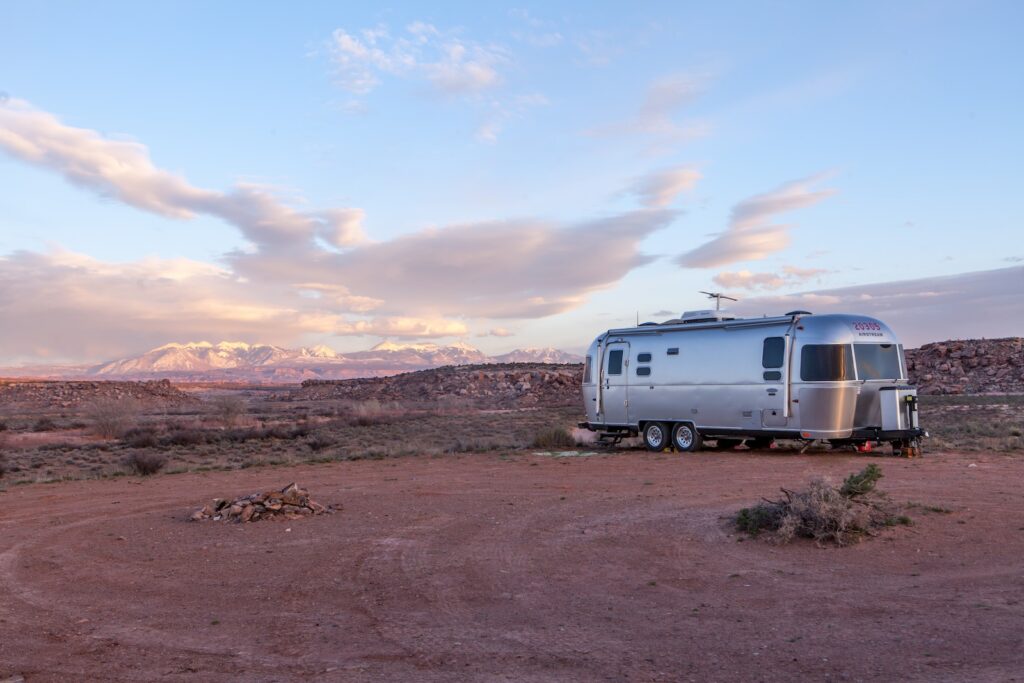Are you a new RV owner looking for guidance on insurance? If so, you’re in luck! In this article, we will explore the various types of RV insurance available and help you determine which one is right for you. As a new owner, it’s essential to understand the different options to ensure your investment is protected. So, let’s dive into the details and make sure you have all the information you need to make an informed decision about your RV insurance.
Liability Insurance
What is liability insurance?
Liability insurance is a crucial component of your RV insurance coverage. It provides protection in case you cause an accident that results in property damage, bodily injury, or even death. This insurance helps cover the costs associated with any legal expenses or settlements that may arise as a result of the accident.
Why is liability insurance important?
Liability insurance is important because it safeguards you from potentially devastating financial consequences. If you were to cause an accident and were found liable, you could be held responsible for the damages. Without liability insurance, you would have to pay for these expenses out of your own pocket, which could be exorbitant and potentially lead to financial ruin.
How much liability insurance do I need?
The amount of liability insurance you need depends on several factors, including your state’s minimum requirements and your personal circumstances. While minimum requirements vary from state to state, it is generally recommended to carry higher liability limits than the minimum. This will provide you with greater protection in the event of a major accident. It is advisable to consult with your insurance agent to determine the appropriate level of liability insurance for your specific needs.
Collision Insurance
Understanding collision insurance
Collision insurance is designed to cover the costs of repairing or replacing your RV if it is damaged in a collision, regardless of who is at fault. Whether you collide with another vehicle, a stationary object, or an obstacle on the road, collision insurance helps alleviate the financial burden of repairing or replacing your RV.
Why do I need collision insurance?
Collision insurance is essential because accidents happen, even to the most careful drivers. Repairing or replacing an RV can be extremely expensive, and without collision insurance, you would be solely responsible for all the costs. By having collision insurance, you can have peace of mind knowing that you are protected financially in the event of a collision.
Factors to consider when choosing collision insurance
When choosing collision insurance, there are a few factors to take into consideration. First, you’ll want to consider the value of your RV. If your RV is older or has a lower market value, the cost of collision insurance may not be worth it. Additionally, you’ll want to review the deductible for collision coverage. A higher deductible may lower your premium but could result in higher out-of-pocket expenses if you need to file a claim. Be sure to evaluate your specific needs and discuss them with your insurance agent to make an informed decision.

Comprehensive Insurance
Explaining comprehensive insurance
Comprehensive insurance is designed to cover damage to your RV that is not caused by a collision. This includes incidents such as theft, vandalism, fire, natural disasters, falling objects, and other non-collision-related damages. It provides financial protection for a wide range of risks and helps ensure that you are not left with significant expenses in the event of such incidents.
Why do I need comprehensive insurance?
Comprehensive insurance is important because it offers protection against a variety of risks that are beyond your control. From theft to severe weather damage, these incidents can occur unexpectedly and result in significant financial losses. Comprehensive insurance provides coverage for repairing or replacing your RV, giving you the peace of mind to enjoy your RV without constantly worrying about potential setbacks.
Coverage and benefits of comprehensive insurance
Comprehensive insurance not only covers the cost of repairing or replacing your RV, but it may also provide coverage for personal belongings inside your RV that are damaged or stolen. Additionally, comprehensive insurance can cover temporary living expenses if your RV becomes uninhabitable due to a covered incident. This coverage can be invaluable during challenging times and can help ease the burden of unexpected circumstances.
Uninsured/Underinsured Motorist Insurance
What is uninsured/underinsured motorist insurance?
Uninsured/underinsured motorist insurance protects you in the unfortunate event that you are involved in an accident with a driver who lacks sufficient or any insurance coverage. This type of insurance provides coverage for medical expenses, lost wages, and other damages resulting from the accident.
Why is it important for RV owners?
Uninsured/underinsured motorist insurance is particularly important for RV owners because accidents involving RVs can result in significant damage and injuries. In the event that you are involved in an accident with an uninsured or underinsured driver, this insurance can help cover your expenses, ensuring that you are not left with the financial burden of someone else’s negligence.
Determining the right uninsured/underinsured motorist coverage
The appropriate level of uninsured/underinsured motorist coverage for you will depend on various factors, including your own insurance coverage, the state you live in, and your personal circumstances. It is advisable to consult with your insurance agent to evaluate your needs and determine the optimal coverage limits to protect you in the event of an accident with an uninsured or underinsured driver.

Medical Payments Coverage
Understanding medical payments coverage
Medical payments coverage, also known as MedPay, provides coverage for medical expenses incurred as a result of an accident, regardless of fault. This insurance can help cover costs such as hospital bills, doctor visits, ambulance fees, and other medical services needed for injuries sustained in an accident.
Why should I consider medical payments coverage?
Medical payments coverage is worth considering because it provides immediate financial assistance for medical expenses resulting from an accident. It can help cover costs that may not be fully covered by your health insurance, such as deductibles, copayments, or treatments that are not covered under your health insurance policy. Having medical payments coverage can provide peace of mind knowing that you have an added layer of protection for medical expenses.
Determining the appropriate level of medical payments coverage
The appropriate level of medical payments coverage varies depending on your individual needs and circumstances. You may want to consider how much coverage your health insurance provides and evaluate your tolerance for risk. Consider consulting with your insurance agent to determine the appropriate level of medical payments coverage that aligns with your specific requirements.
Personal Injury Protection (PIP)
What is personal injury protection?
Personal injury protection, commonly known as PIP, is an insurance coverage that provides medical expenses and, in some cases, lost income and other costs resulting from an accident, regardless of fault. PIP coverage varies by state, but it typically includes coverage for medical expenses, rehabilitation costs, and even funeral expenses.
Do I need PIP coverage for my RV?
Whether or not you need PIP coverage for your RV depends on your individual circumstances and the specific laws in your state. Some states require PIP coverage as part of your RV insurance policy, while others offer it as an optional coverage. Consulting with your insurance agent can help you understand the requirements and determine if PIP coverage is necessary for your situation.
Considerations when choosing personal injury protection
When choosing personal injury protection, it is important to consider factors such as the coverage limits, deductible, and any additional benefits that may be included. Take into account your specific needs, such as your health insurance coverage, existing disability insurance, and other financial resources available to you. Understanding the details of your policy will help you make an informed decision about the appropriate level of personal injury protection for your RV.

Total Loss Replacement
Exploring total loss replacement insurance
Total loss replacement insurance is a coverage option that provides compensation for the full replacement cost of your RV if it is declared a total loss due to an accident, theft, or other covered event. With this coverage, you can receive a brand-new RV that is similar to the one you lost, rather than receiving a depreciated value for your old RV.
Why should I consider total loss replacement coverage?
Total loss replacement coverage offers peace of mind and financial security in the event of a total loss. RVs can be a significant investment, and the cost of replacing one can be substantial. By having total loss replacement coverage, you can ensure that you won’t face a significant financial setback if your RV becomes a total loss.
Factors to consider when selecting total loss replacement insurance
When selecting total loss replacement insurance, consider factors such as the coverage limits, terms and conditions of the policy, and any additional costs associated with the coverage. It is important to review the requirements and eligibility criteria, as well as any exclusions or limitations that may apply. Consult with your insurance agent to understand the options available and determine the best total loss replacement coverage for your needs.
Roadside Assistance
Understanding roadside assistance coverage
Roadside assistance coverage provides you with assistance when your RV breaks down or experiences a mechanical failure. This coverage typically includes services such as towing, battery jump-starts, flat tire changes, fuel delivery, and locksmith services. Roadside assistance can be a lifesaver when you are stranded on the side of the road and need immediate assistance.
Why is roadside assistance important for RV owners?
Roadside assistance is particularly important for RV owners due to the unique challenges and complexities of RV travel. RVs can experience mechanical issues on the road, and being stranded in an unfamiliar location can be stressful and potentially dangerous. Roadside assistance provides you with the peace of mind that help is just a phone call away, allowing you to quickly get back on the road and continue your journey.
Determining the appropriate level of roadside assistance
When determining the appropriate level of roadside assistance coverage, consider factors such as the distance of coverage, the number of service calls allowed per year, and any additional benefits offered. Evaluate your RV usage patterns and travel habits to determine the level of coverage that best meets your needs. Discuss your requirements with your insurance agent to ensure that you have adequate roadside assistance coverage for your RV.

Full Timer Coverage
What is full timer coverage?
Full timer coverage is an insurance option specifically designed for RV owners who use their RV as their primary residence. This coverage provides similar benefits to homeowners’ insurance by protecting your RV, personal belongings, and liability risks associated with living in your RV full-time.
Why do I need full timer coverage for my RV?
If you use your RV as your primary residence, full timer coverage is essential to ensure that you have comprehensive protection. Regular RV insurance policies may not fully cover the unique risks and liabilities associated with full-time RV living. Full timer coverage provides you with the peace of mind of having adequate insurance that is specifically tailored to your lifestyle as a full-time RVer.
Coverage and benefits offered by full timer coverage
Full timer coverage typically includes liability protection, personal property coverage, and coverage for structures or attachments such as awnings or satellite dishes. This coverage also offers coverage for additional living expenses if your RV becomes uninhabitable due to a covered event. It is important to review the specific coverage details and exclusions of full timer coverage to ensure that you have adequate protection for your full-time RV lifestyle.
Additional Endorsements and Coverage Options
Optional endorsements and coverage options to consider
In addition to the standard coverage options, there are several optional endorsements and coverage options that you may consider to enhance your RV insurance policy. These endorsements can provide additional protection and peace of mind in specific situations or for specialized needs.
Enhancing your RV insurance policy with additional options
Additional options you may consider include vacation liability coverage, which protects you when using your RV on vacation or as a rental property, storage option coverage for when your RV is in storage, and diminishing deductible programs that lower your deductible each year you go accident-free. There are also options for personal effects coverage, roadside assistance, and many more. Assess your specific needs and discuss them with your insurance agent to determine the additional endorsements that are right for you.
Factors to consider when choosing additional endorsements
When choosing additional endorsements, factors to consider include the cost of the endorsement, the coverage limits provided, and how well the endorsement aligns with your specific needs. It is important to review the details of each endorsement, including any exclusions or limitations, to ensure that it meets your expectations and offers the level of protection you desire. Your insurance agent can guide you through the available options and help you select the most suitable endorsements for your RV insurance policy.
In conclusion, when it comes to RV insurance, there are various coverage options to consider. Liability insurance, collision insurance, comprehensive insurance, uninsured/underinsured motorist insurance, medical payments coverage, personal injury protection, total loss replacement, roadside assistance, full timer coverage, and additional endorsements are all essential considerations for new RV owners. Each coverage serves a specific purpose and helps protect you financially in various situations. It is important to assess your needs, consult with your insurance agent, and choose the coverage options that provide the right level of protection for your RV and your lifestyle. With the appropriate insurance coverage, you can enjoy the freedom and adventure of RV ownership with peace of mind.

Affiliate Disclosure: Some of the links on our website are affiliate links, meaning we may earn a small commission if you make a purchase through these links. This helps support our website and keeps our content free for our readers.
